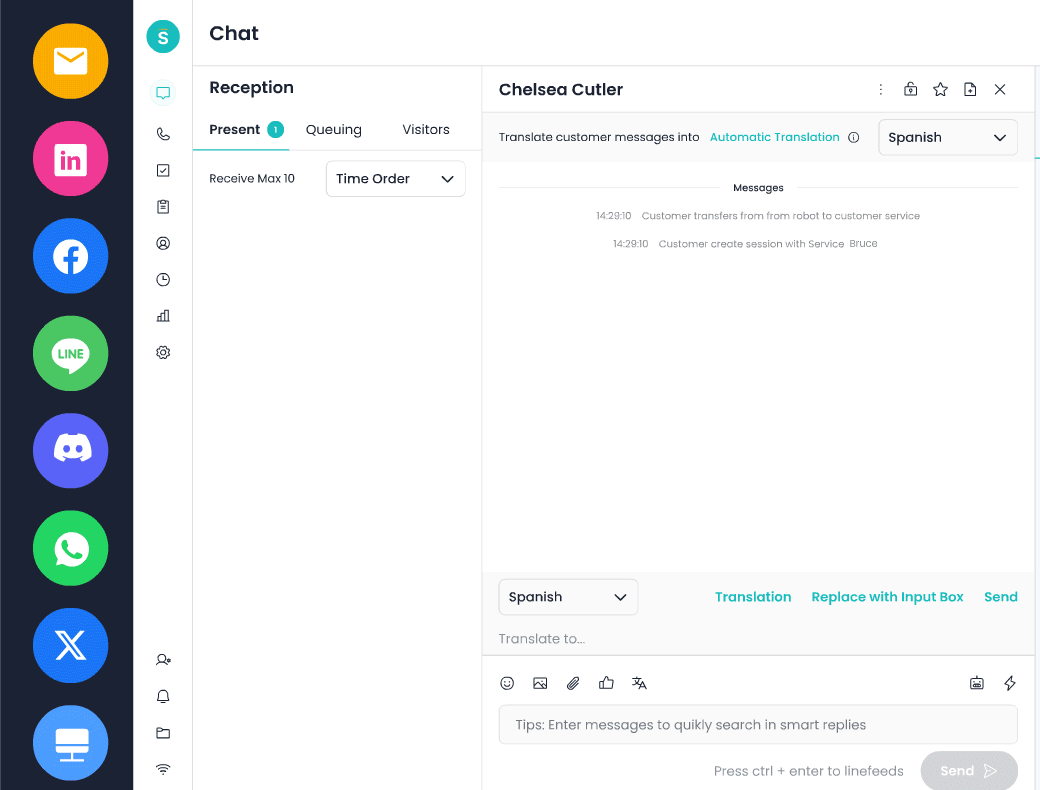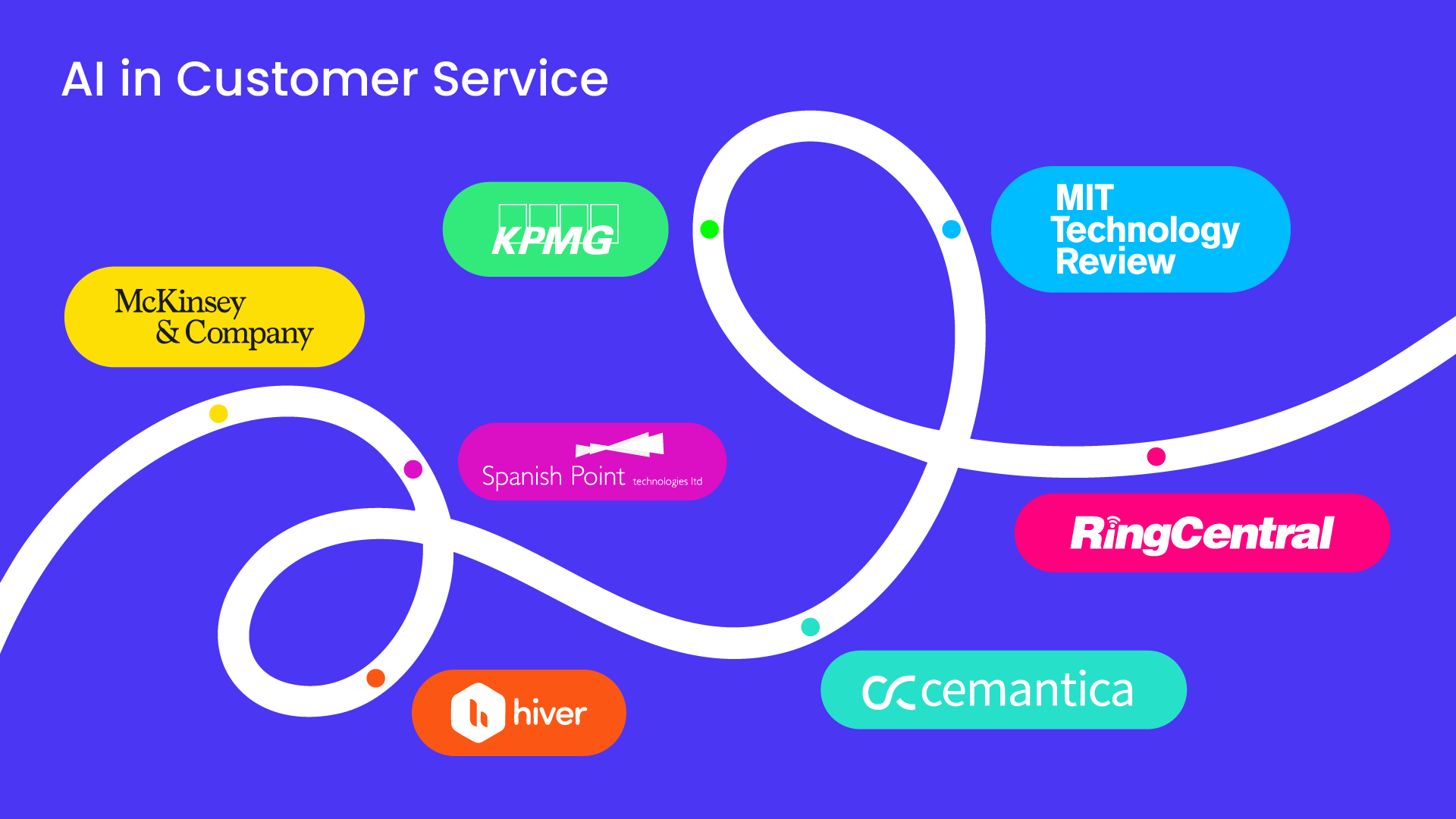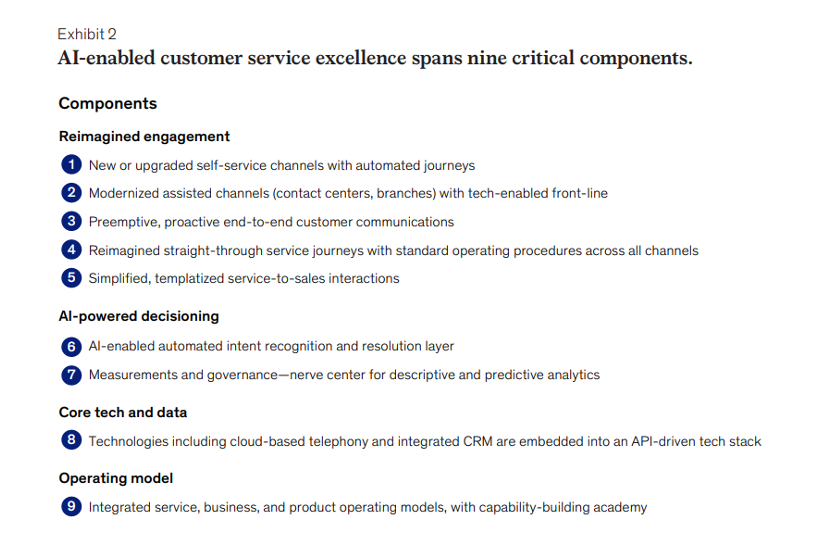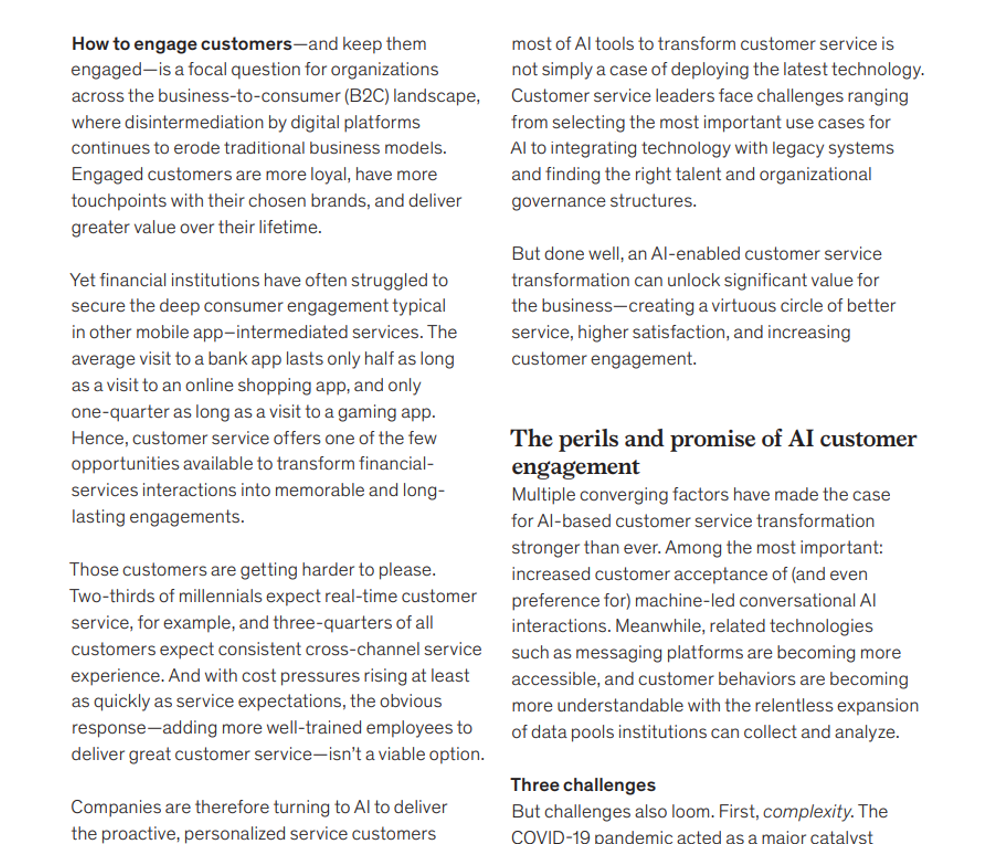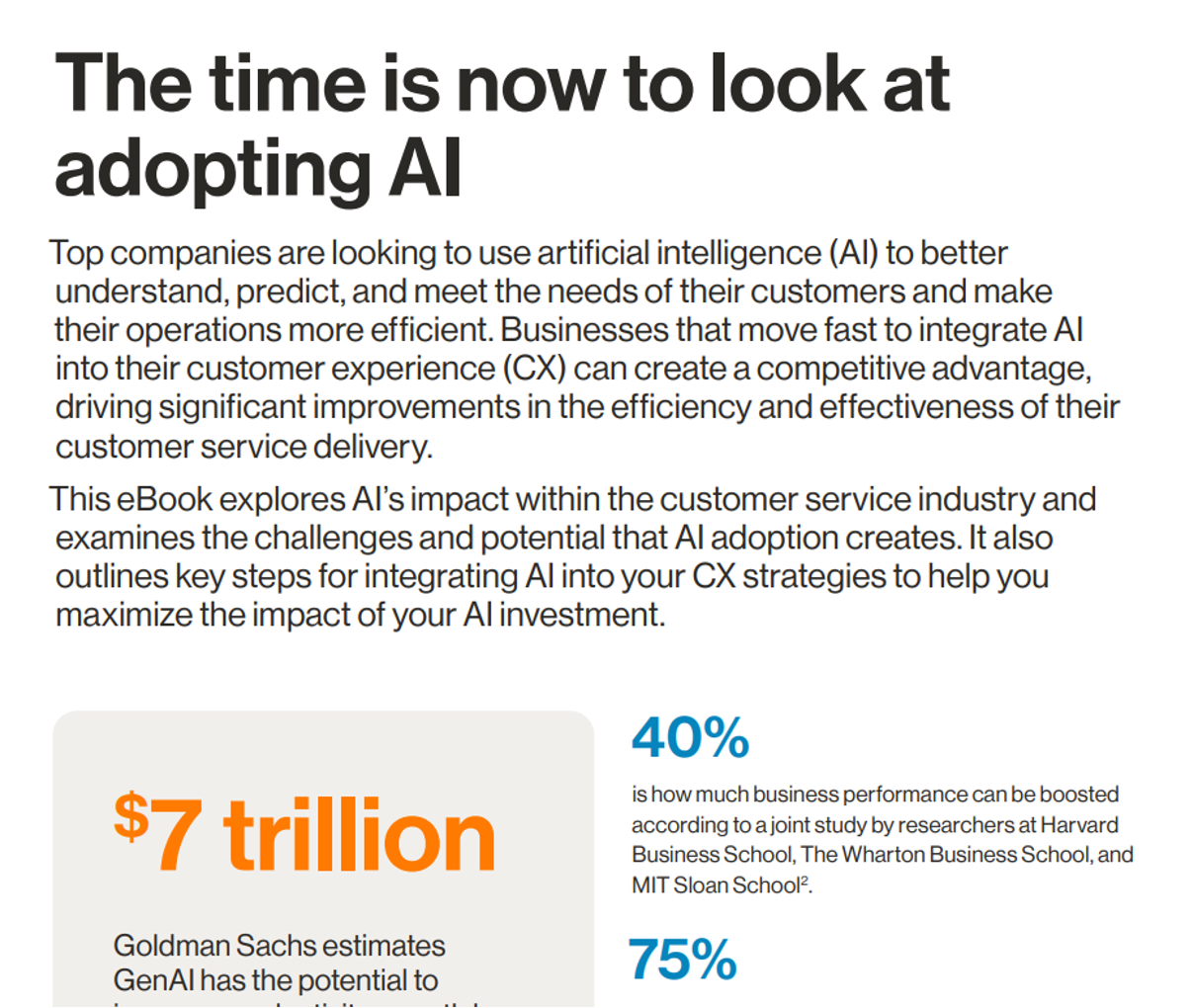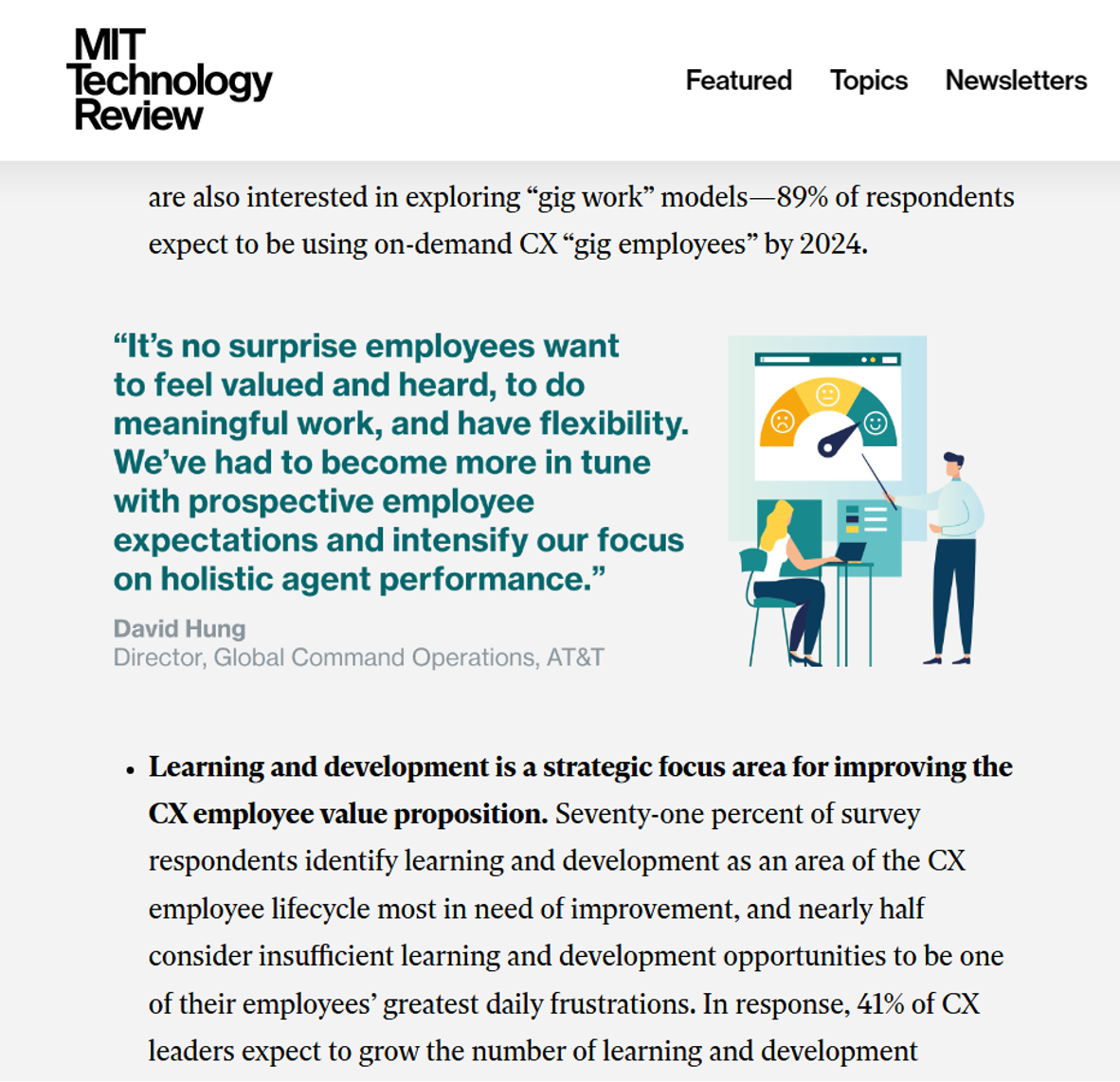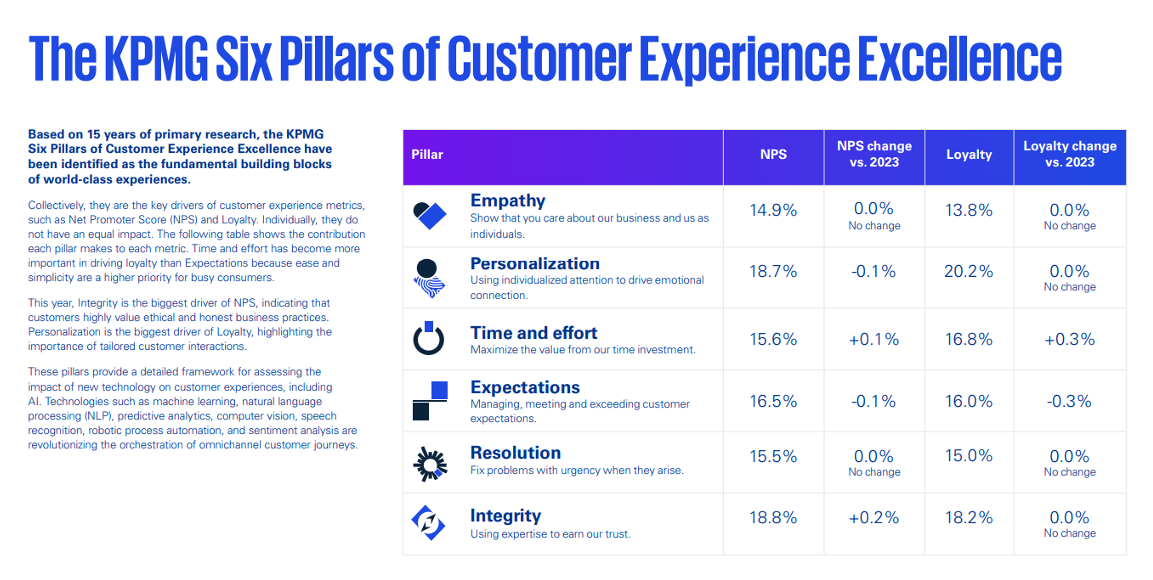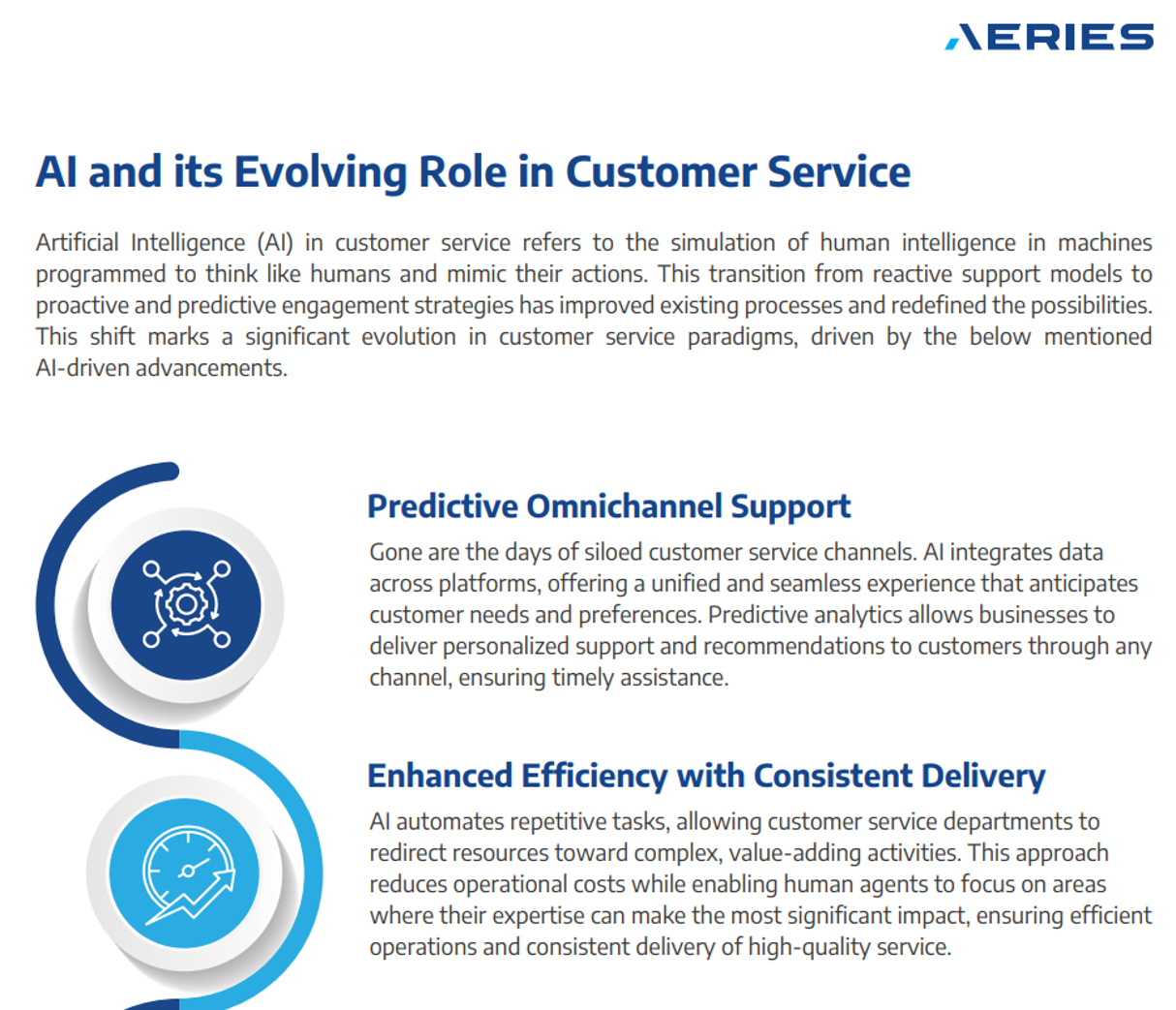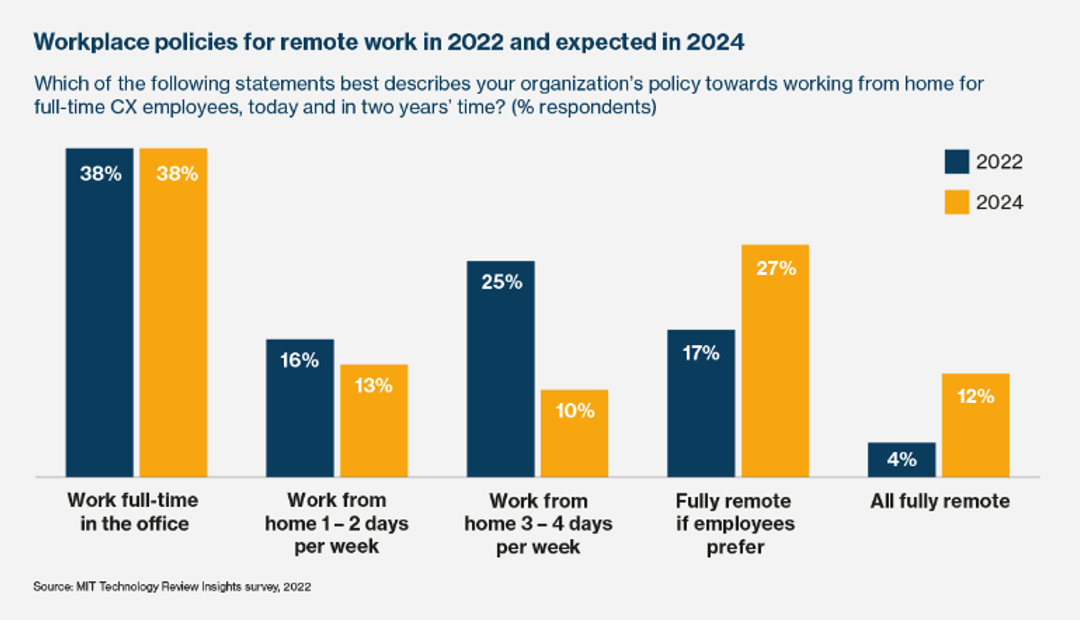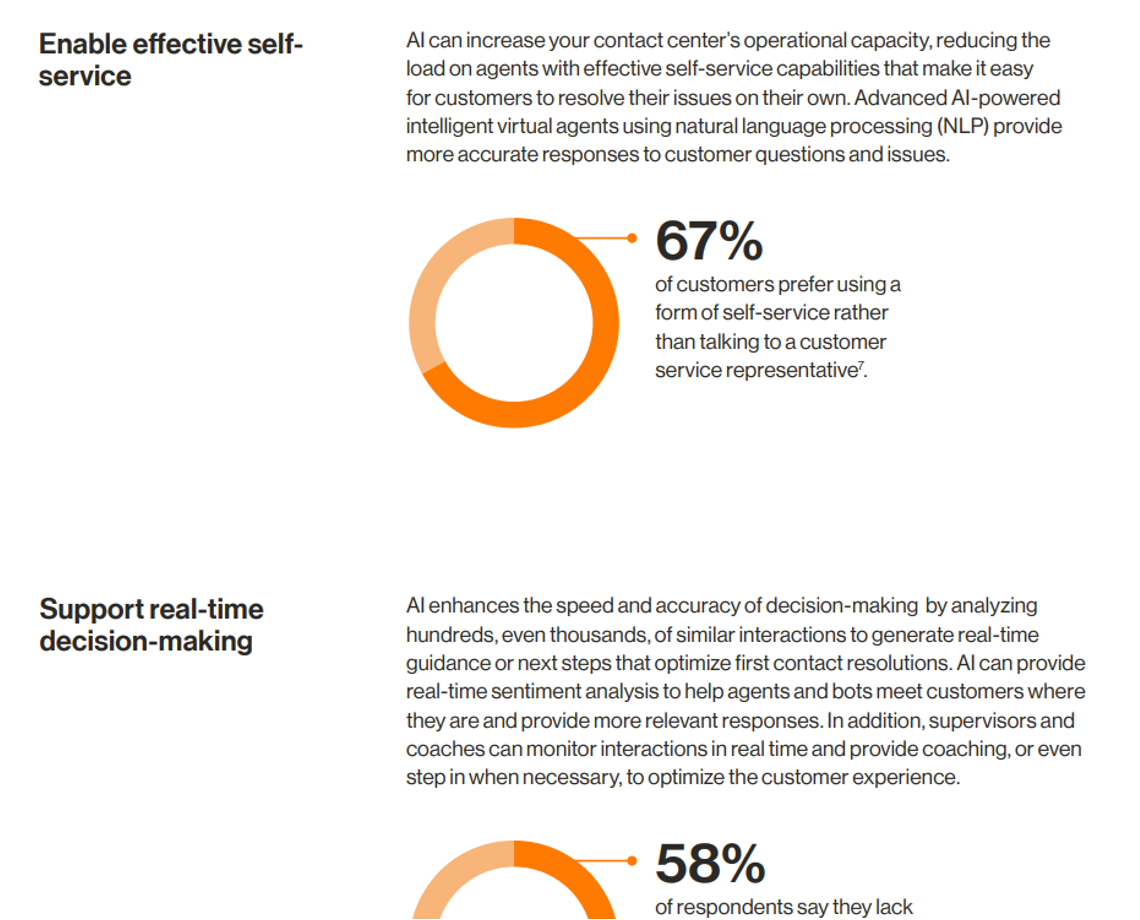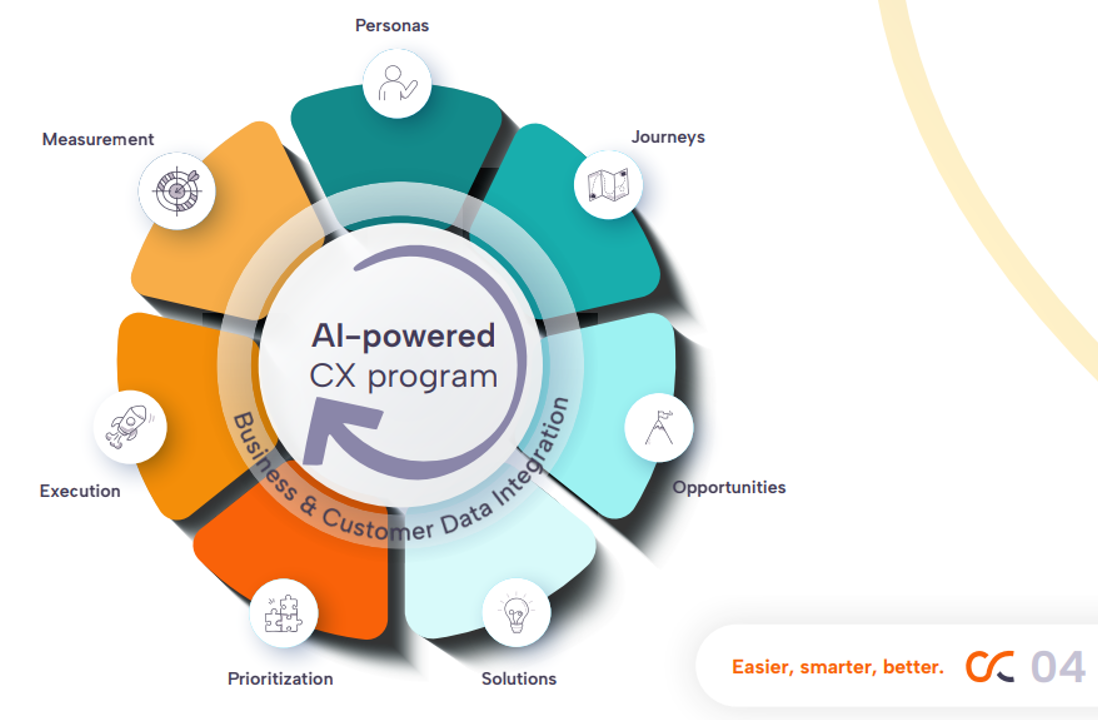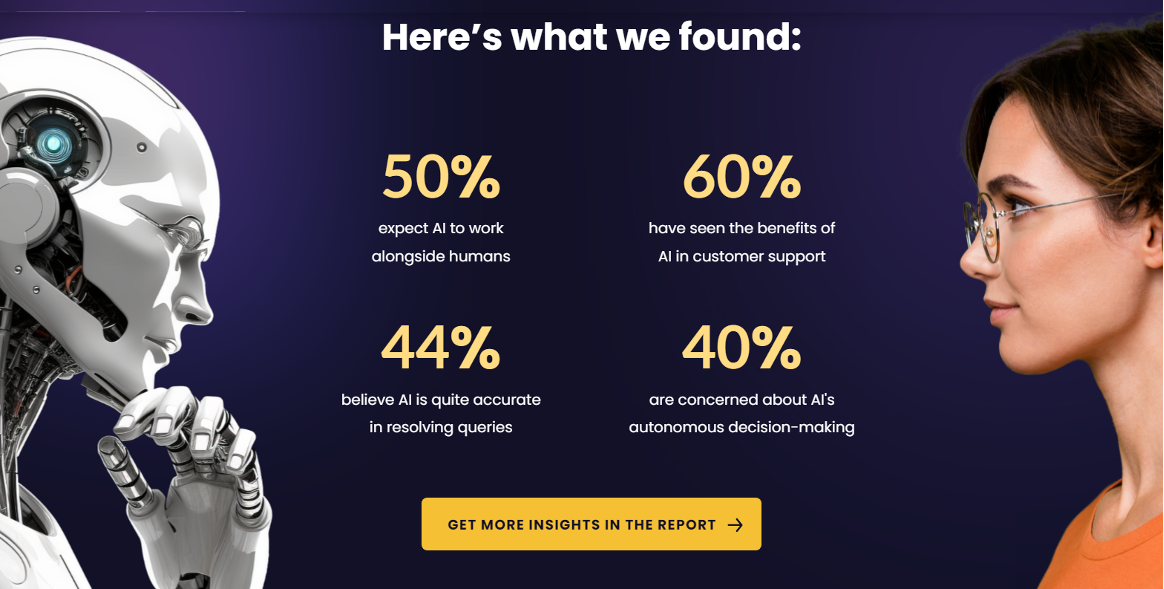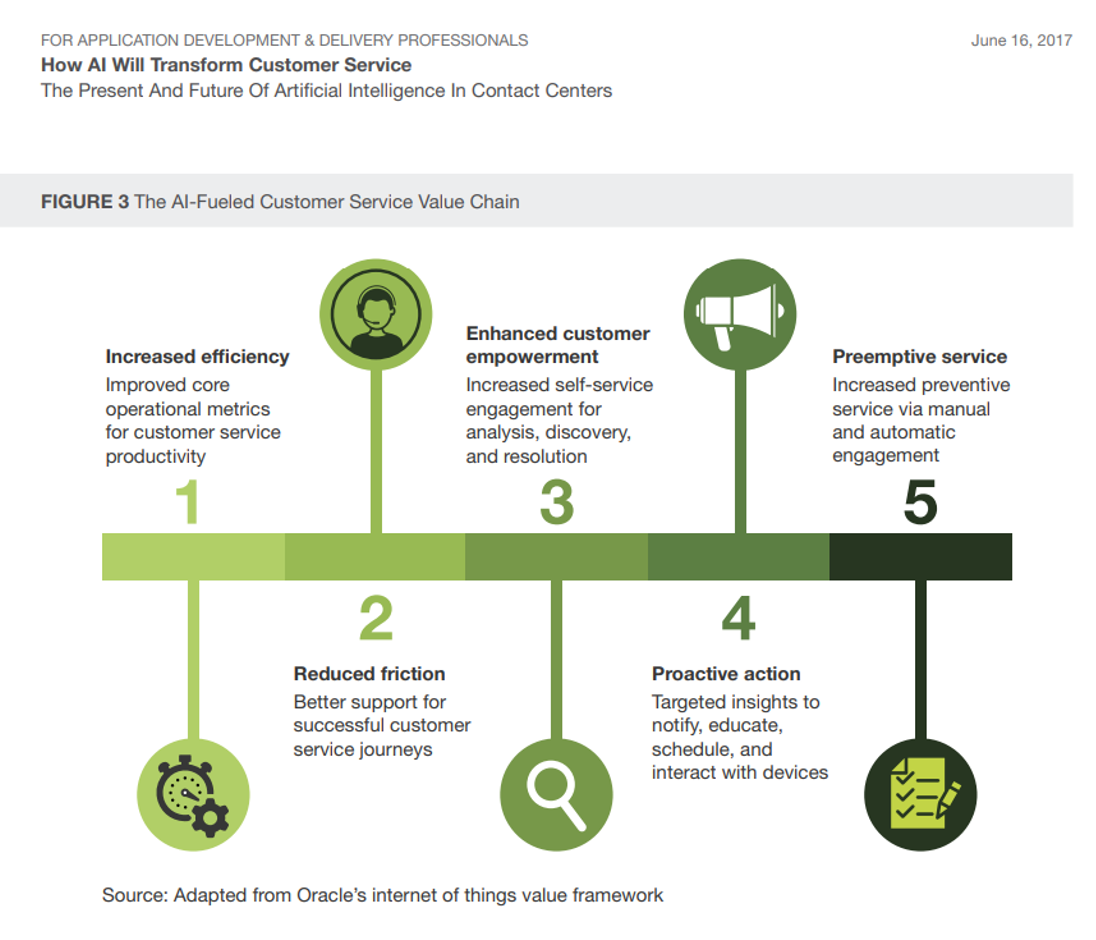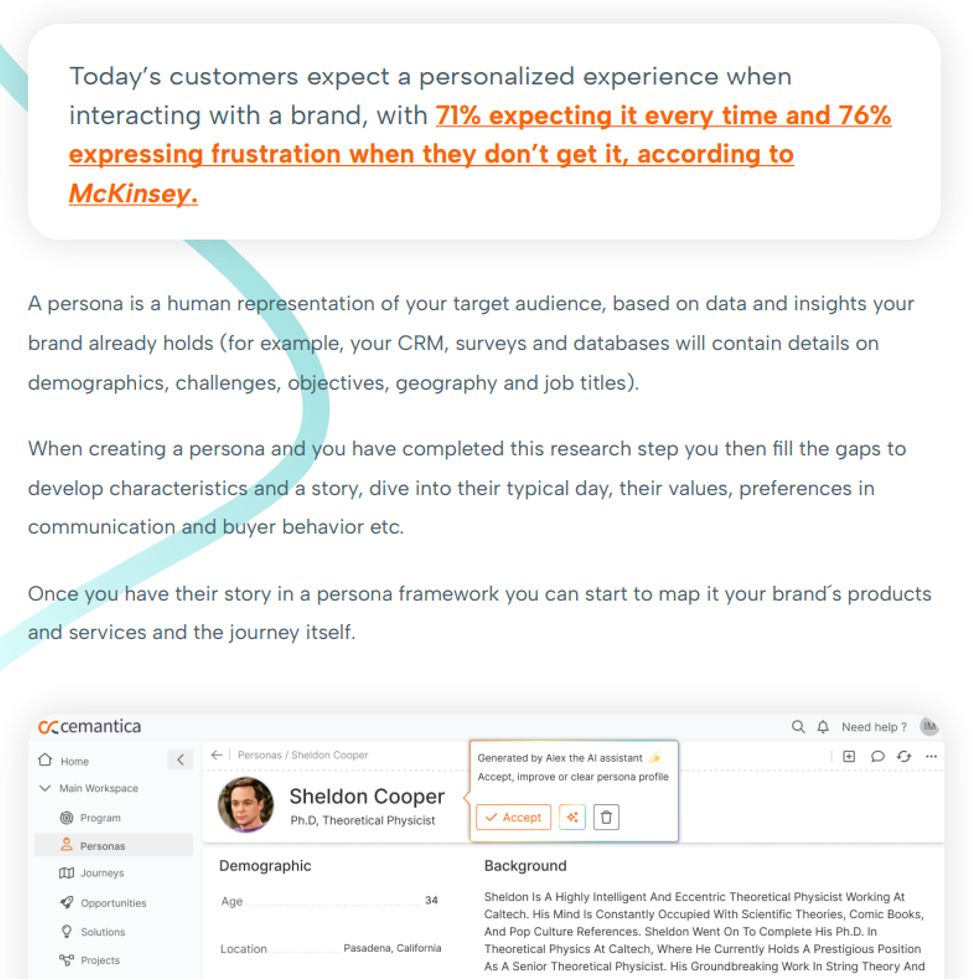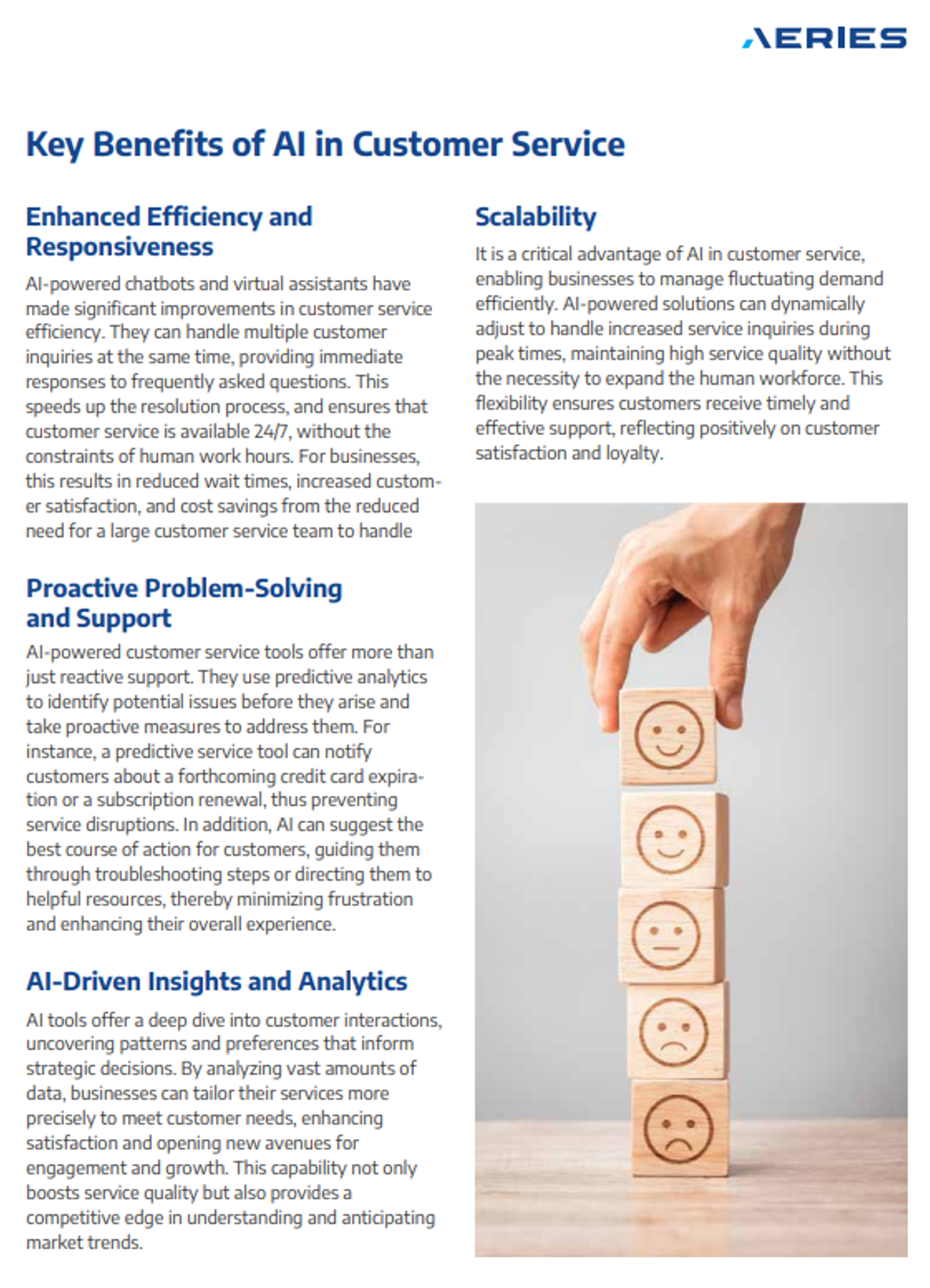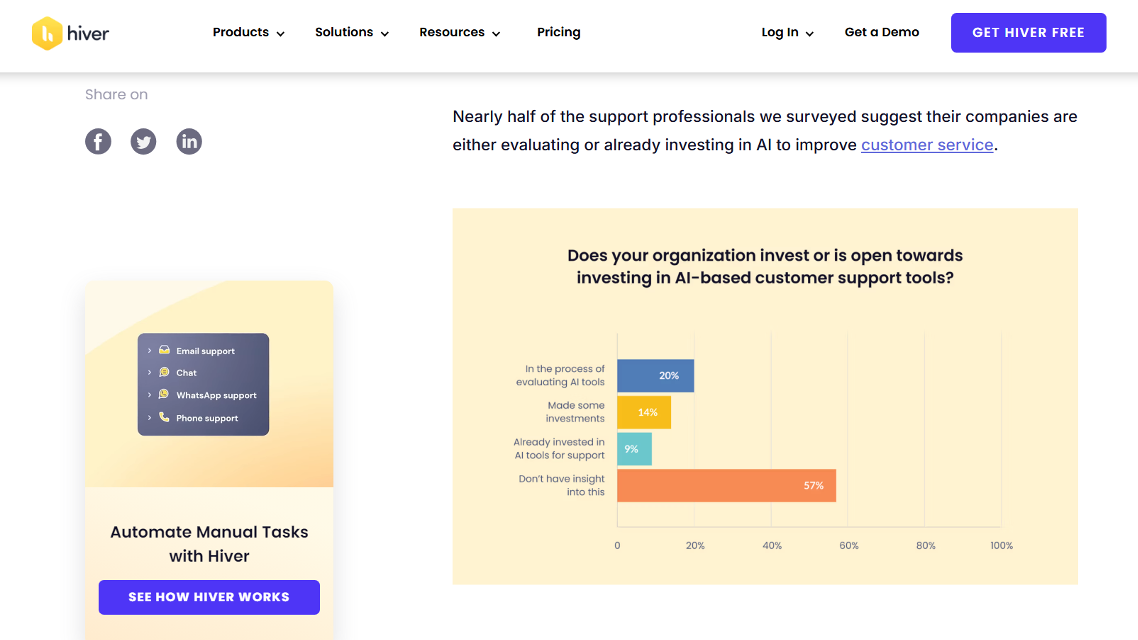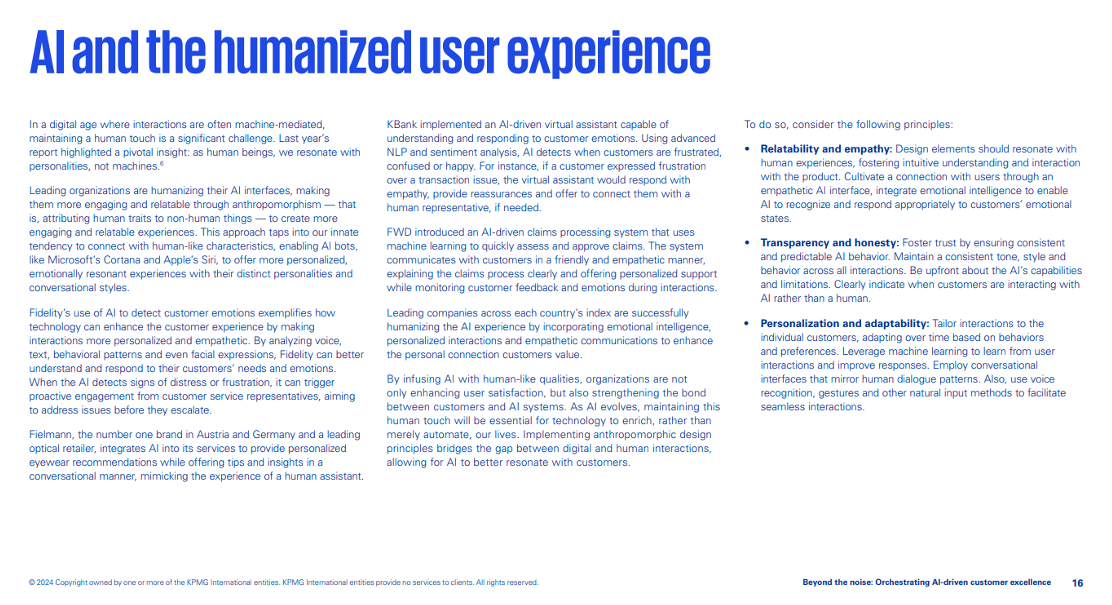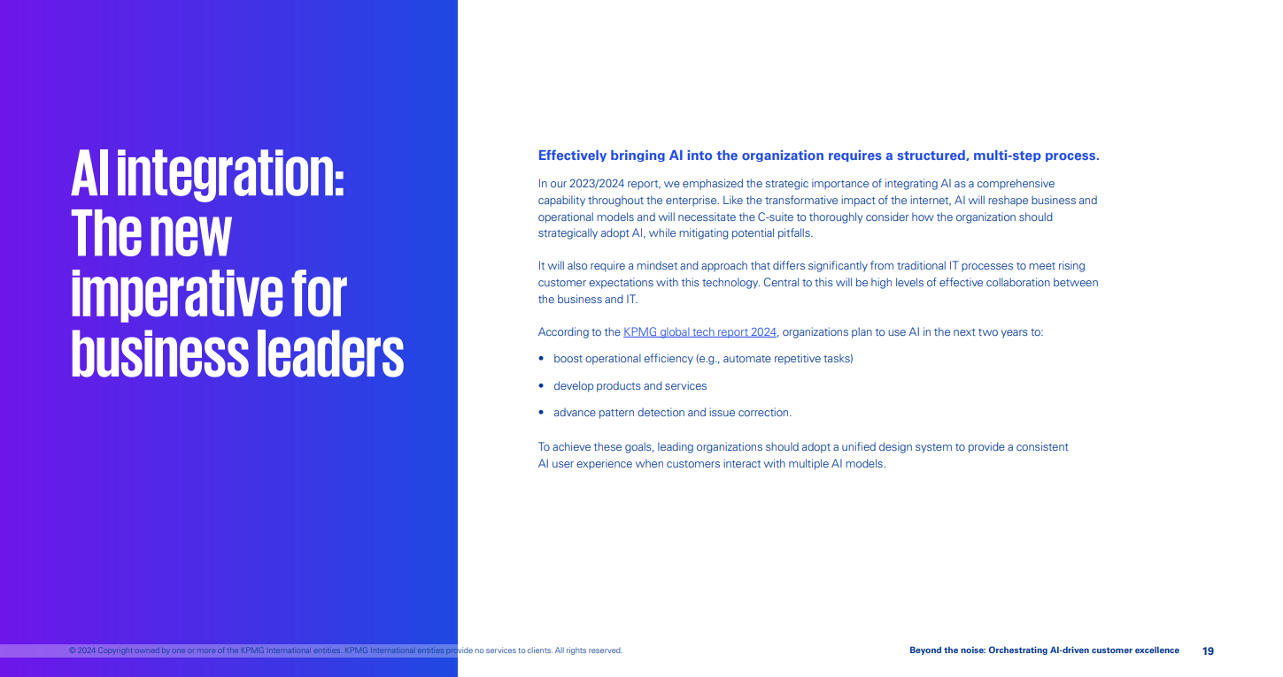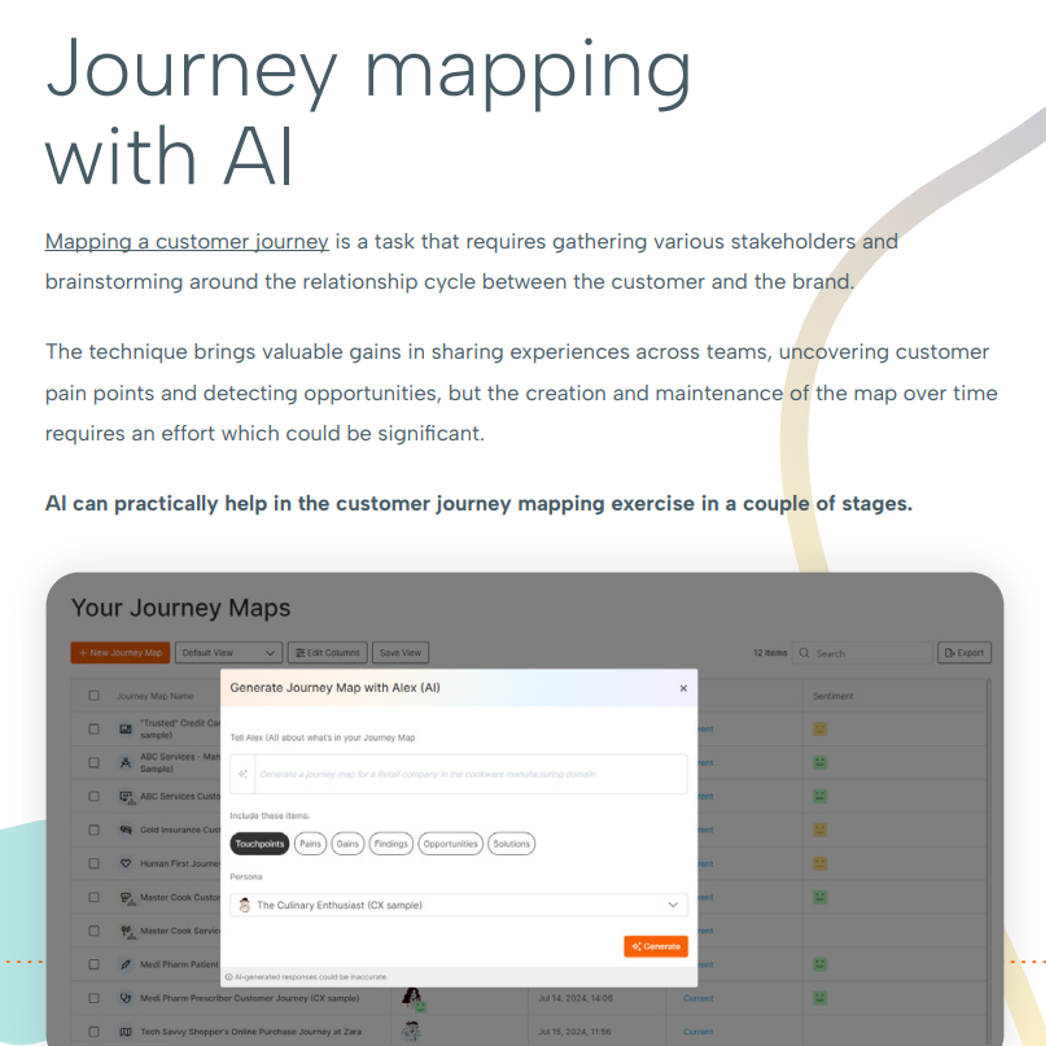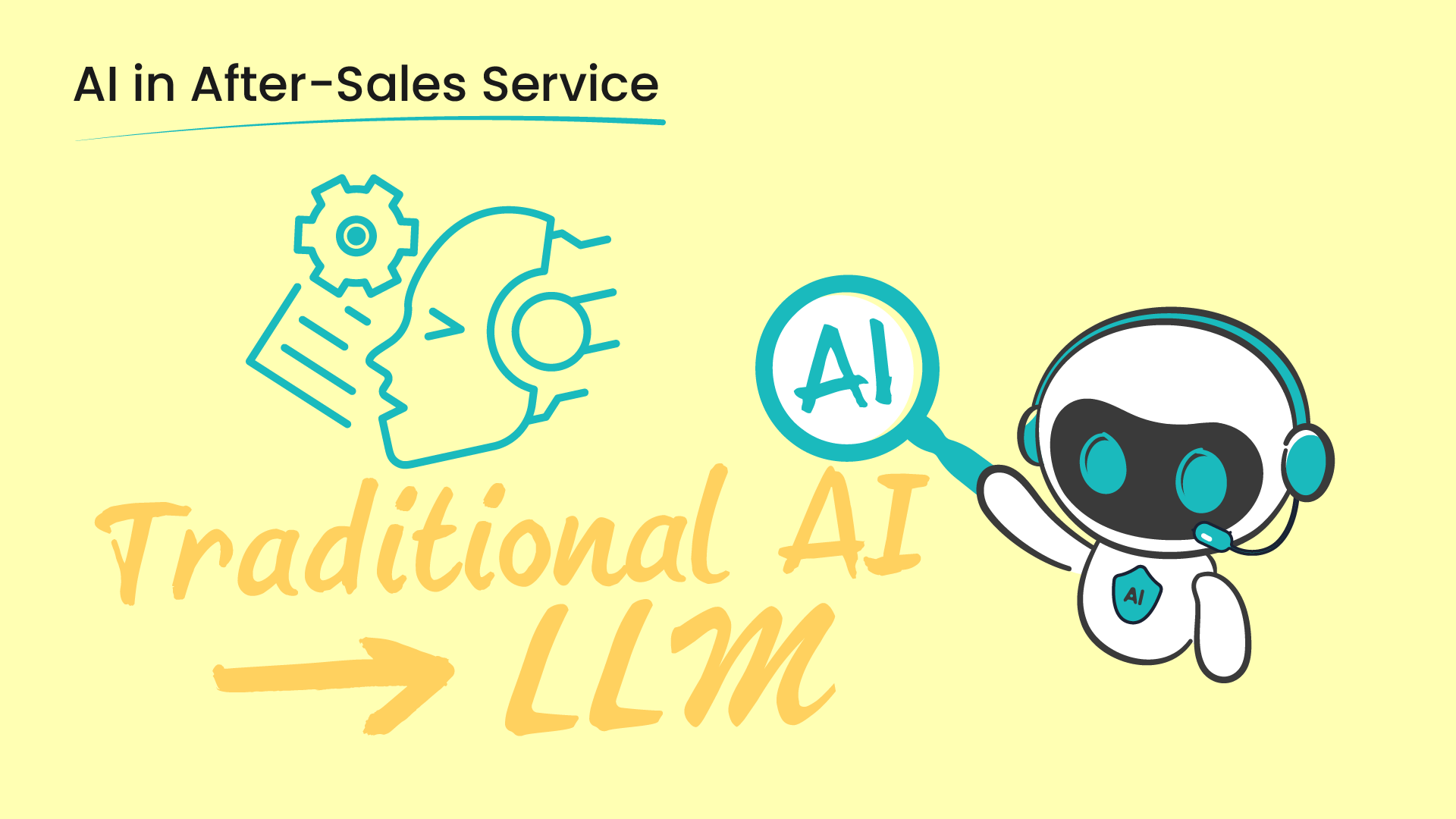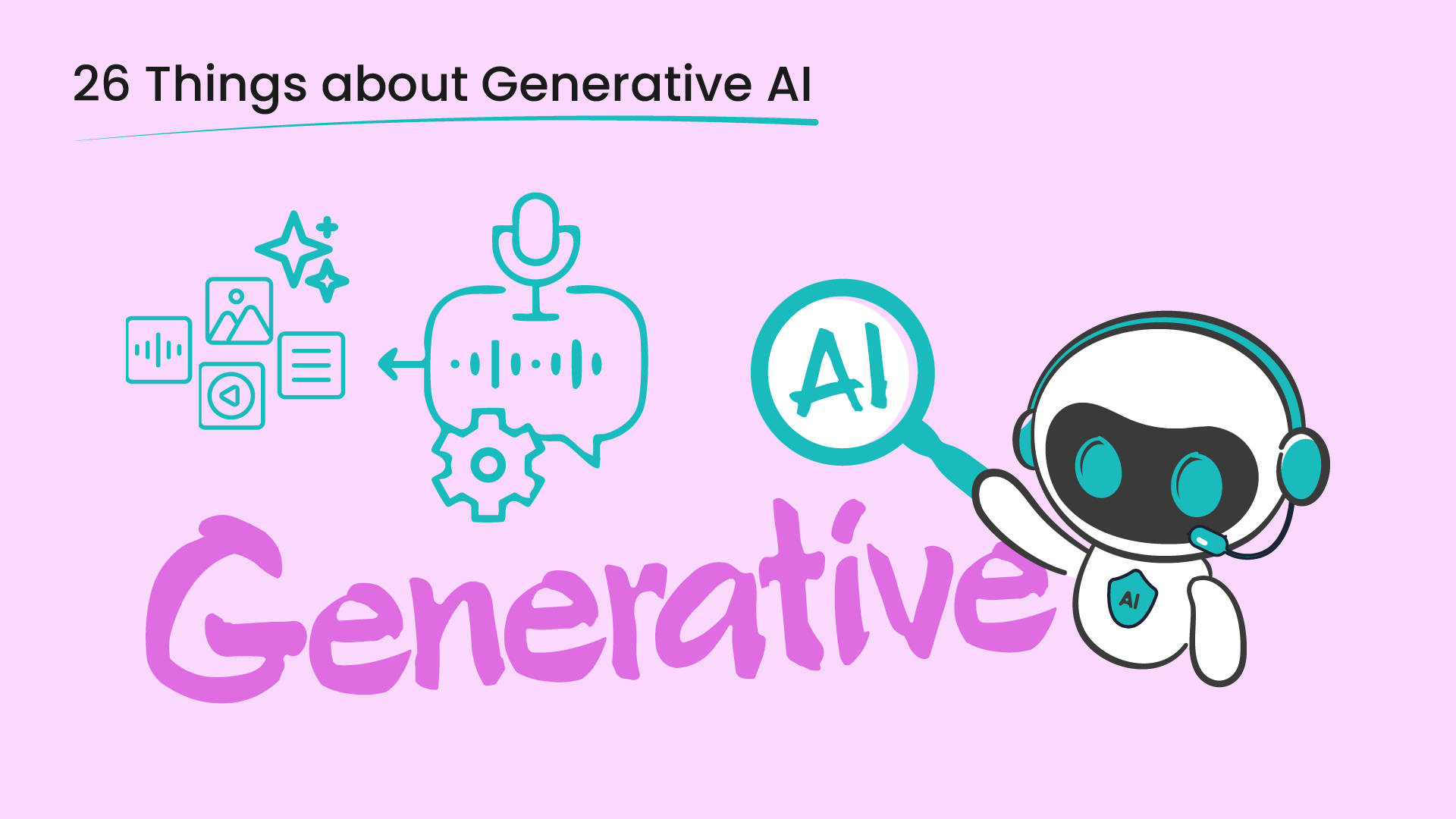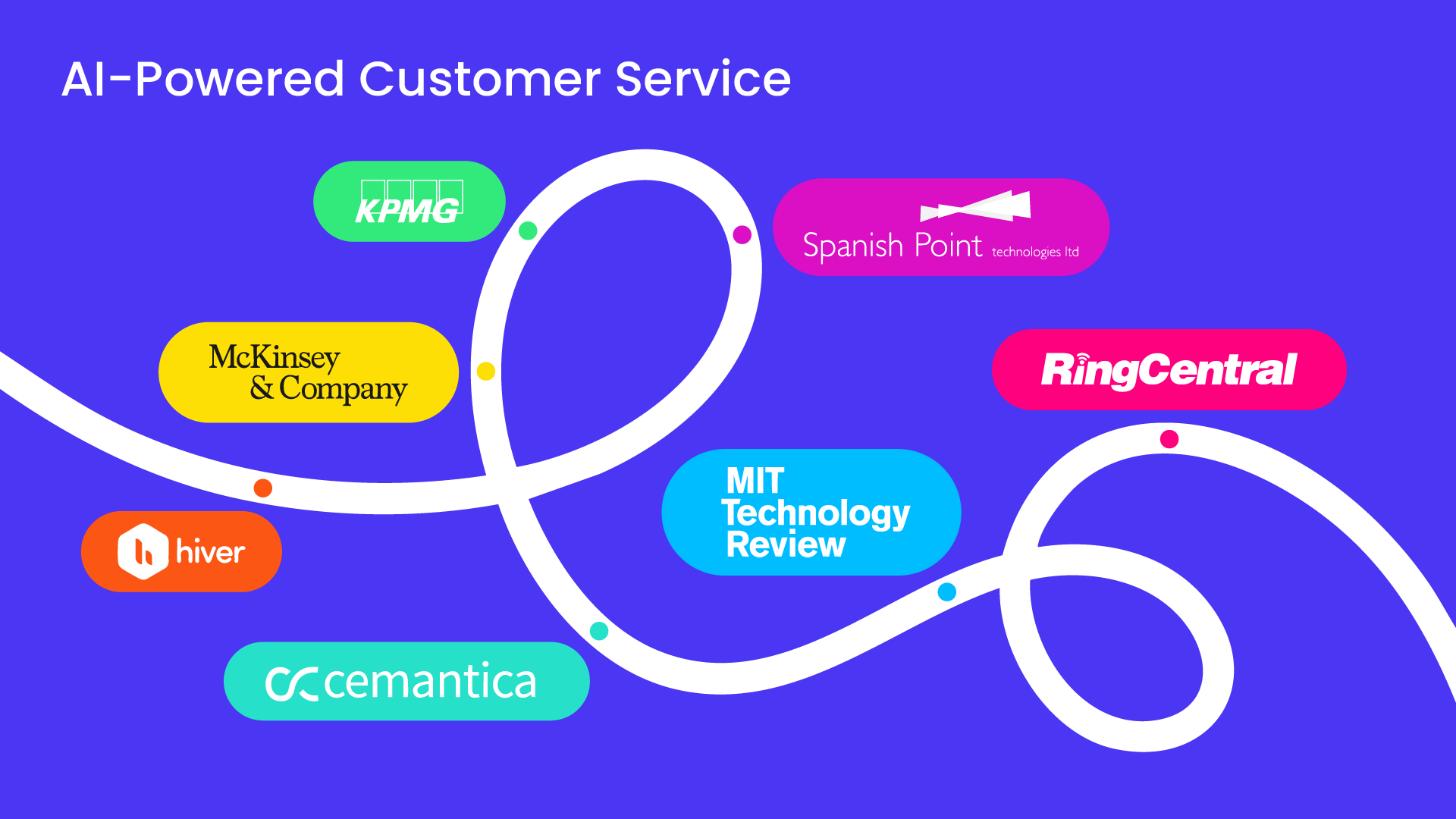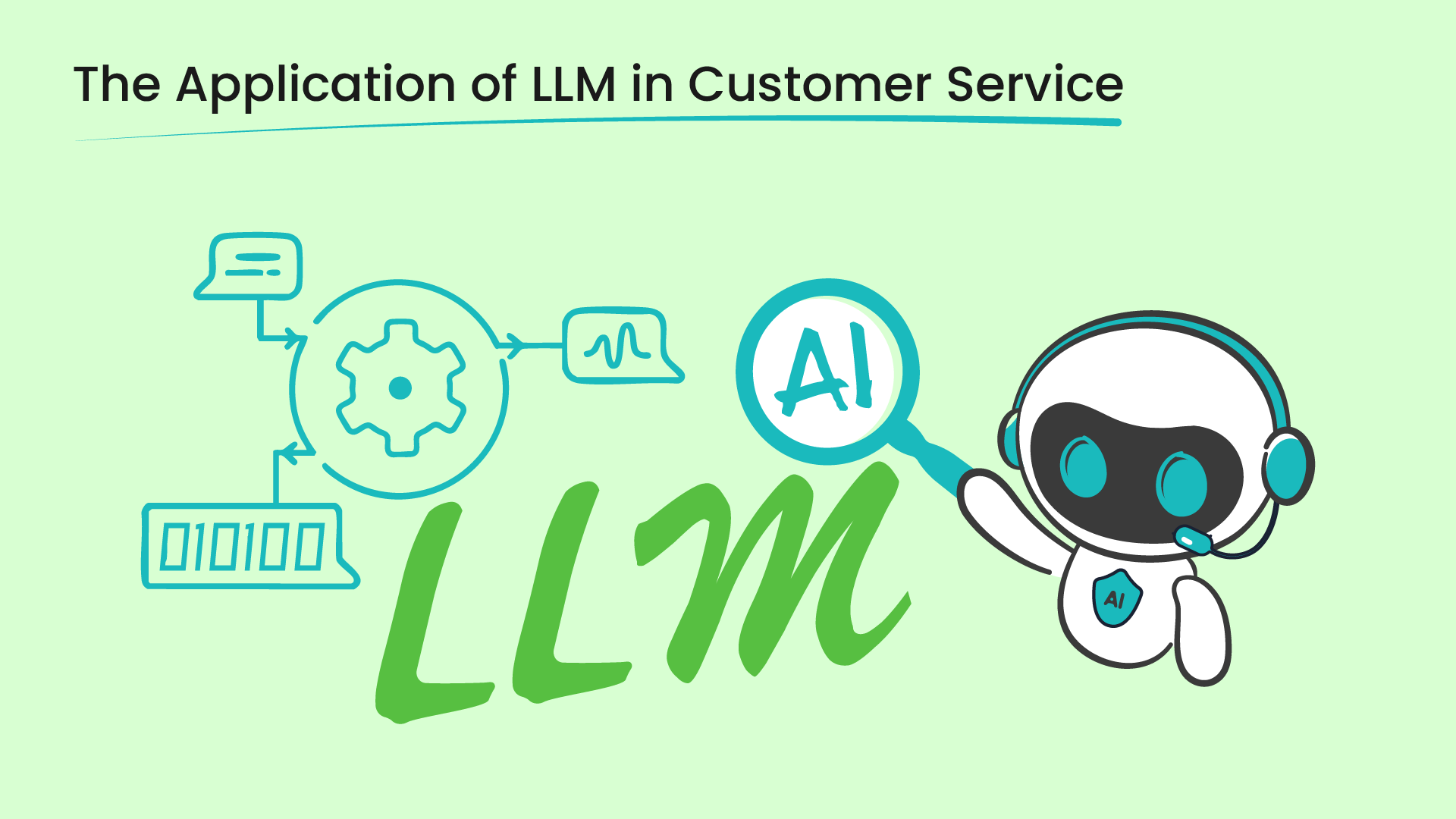Artificial Intelligence (AI) is increasingly becoming a pivotal element in the realm of customer service, transforming how businesses interact with their clients. By leveraging advanced technologies such as natural language processing (NLP) and machine learning, organizations can optimize various facets of customer support, enhancing efficiency and improving overall customer satisfaction.
AI applications, including chatbots and virtual assistants, enable companies to provide timely responses and personalized experiences, thereby streamlining operations and reducing the workload on human agents.
This article is based on insights from multiple reports that present a range of opinions on AI’s role in customer service. By synthesizing these perspectives, we aim to provide a comprehensive overview of AI’s transformative potential and its implications for businesses and customers alike.


Opinion 1: AI in Customer Service Enhances Customer Experience
The integration of Artificial Intelligence (AI) in customer service significantly enhances the overall customer experience. This enhancement is evident through various mechanisms, including faster response times, personalized interactions, and improved accessibility.
Evidence from McKinsey & Company’s report The Next Frontier of Customer Enaggement: AL-enabled Customer Service highlights that AI boosts customer satisfaction by enabling faster response times and personalized interactions. The ability of AI to analyze customer data allows businesses to tailor their responses and services to individual preferences, creating a more engaging and satisfactory experience for customers.
This aligns with findings from Beyond The Noise Orchestrating Al-Driven Customer Excellence by KPMG, which states that AI improves customer experience (CX) scores through predictive analytics and sentiment analysis. By understanding customer sentiments and predicting needs, companies can proactively address issues, further enhancing satisfaction.
Moreover, Ring central’s report on An Introduction To AI In Customer Service emphasizes that AI tools like chatbots provide seamless omnichannel support, which is crucial for maintaining user engagement. Customers today expect to interact with brands across multiple platforms—such as social media, websites, and messaging apps—and AI facilitates this by ensuring consistent support regardless of the channel. This omnichannel capability not only meets customer expectations but also fosters loyalty by providing a cohesive experience.
 Opinion 2: AI Can Reduce Operational Costs and Increase Efficiency
Opinion 2: AI Can Reduce Operational Costs and Increase Efficiency
The implementation of Artificial Intelligence (AI) in customer service is a powerful strategy for reducing operational costs and enhancing efficiency.
McKinsey & Company’s report The Next Frontier of Customer Enaggement: AL-enabled Customer Service also indicates that significant cost reductions can be achieved through the automation of repetitive tasks.
By deploying AI-powered solutions, businesses can handle routine inquiries without human intervention, thus freeing up human agents to focus on more complex issues that require critical thinking and personal engagement. This not only cuts labor costs but also boosts overall productivity.
Furthermore, Ring central’s report on An Introduction To AI In Customer Service highlights that AI enables scalability without significantly increasing resources. As customer demand fluctuates, AI systems can manage high volumes of inquiries efficiently, ensuring that businesses can maintain service levels without the need for proportional increases in staffing.
In the report Customer Experience and The Future of Work by MIT Technology emphasizes that as AI takes over routine tasks, employees are empowered to engage in higher-value work, which enhances overall productivity and innovation within the organization. This shift not only improves employee satisfaction but also drives better business outcomes by allowing teams to focus on critical initiatives rather than day-to-day operations.
 Opinion 3: AI Improves Personalization in Customer Service
Opinion 3: AI Improves Personalization in Customer Service
Artificial Intelligence (AI) plays a crucial role in enhancing personalization in customer service, allowing businesses to tailor their interactions and offerings to meet individual customer needs.
KPMG highlights how AI leverages customer data to provide tailored recommendations. By analyzing historical interactions, purchase patterns, and preferences, AI systems can deliver highly relevant suggestions, whether it’s recommending products, offering solutions, or personalizing communication.
Additionally, Aeries Technology report on AI’s Transformative Impact on Customer Service and Experience discusses how predictive models anticipate customer needs to deliver proactive solutions. By utilizing historical data and machine learning algorithms, AI can forecast future customer behaviors and preferences. For example, if a customer frequently purchases certain items, AI can alert them to new arrivals or promotions related to those products, thereby increasing engagement and loyalty.
Furthermore, a report, How AI Will Transform Customer Service by Kate Legette emphasizes that AI systems learn customer preferences over time, creating personalized experiences that evolve with the customer. As customers interact with AI-driven platforms, these systems continuously gather data and refine their understanding of individual preferences. This ongoing learning process enables businesses to provide increasingly relevant recommendations and support, fostering a deeper connection between the brand and the customer.
 Opinion 4: AI is Revolutionizing Omnichannel Customer Support
Opinion 4: AI is Revolutionizing Omnichannel Customer Support
Artificial Intelligence (AI) is fundamentally transforming omnichannel customer support by creating seamless and consistent experiences across various communication channels. This revolution is supported by evidence from multiple reports that highlight how AI enhances customer interactions and reduces friction.
Evidence from MIT report indicates that AI seamlessly integrates across channels, enabling businesses to provide consistent customer experiences. By leveraging AI, companies can maintain a continuous conversation thread, allowing customers to switch between platforms—such as chat, email, and social media—without losing context.
RingCentral report on Beyond the Noise: Orchestrating AI-Dricen Customer Experience emphasizes how AI-driven omnichannel strategies reduce friction in customer interactions. Tools like chatbots and virtual assistants provide instant support across platforms, while analytics tools identify and address pain points in the customer journey. This streamlined approach minimizes delays, enhances satisfaction, and ensures customers receive timely assistance on their preferred channels.
 Opinion 5: AI in Customer Service Faces Challenges
Opinion 5: AI in Customer Service Faces Challenges
While AI offers transformative potential in customer service, its implementation is not without challenges. Reports from McKinsey, RingCentral, and Cemantica shed light on integration hurdles, trust issues, and skill gaps that businesses must address to maximize AI’s effectiveness.
McKinsey identifies integration complexities and data quality issues as significant barriers to successful AI implementation. Deploying AI systems often requires integrating new technologies with legacy infrastructure, which can be resource-intensive and time-consuming.
Additionally, AI’s effectiveness relies heavily on high-quality data; gaps or inaccuracies in data can lead to suboptimal outcomes, such as flawed predictions or irrelevant recommendations.
RingCentral highlights trust and transparency as critical challenges in AI-driven customer service. Customers may hesitate to engage with AI if they perceive a lack of transparency in how their data is used or if they feel the AI lacks empathy. Building trust requires businesses to clearly communicate the role of AI in interactions and prioritize ethical data practices.
Cemantica underscores skill gaps as a major hurdle for organizations managing AI systems. Effective use of AI in customer service demands specialized knowledge in areas like machine learning, data analysis, and AI governance. Many businesses struggle to recruit or train staff with the necessary expertise, which can limit the potential benefits of AI adoption.
 Opinion 6: AI Cannot Fully Replace Human Agents
Opinion 6: AI Cannot Fully Replace Human Agents
While AI has significantly enhanced customer service, it cannot fully replace the unique capabilities of human agents. Insights from Hiver, Spanish Point, and Cemantica reveal that human empathy, emotional intelligence, and problem-solving skills remain indispensable for delivering exceptional customer support.
Hiver emphasizes that human empathy and complex problem-solving are irreplaceable in customer service. While AI excels at handling routine queries and processing data, it cannot replicate the emotional connection and nuanced understanding that human agents bring to interactions. This human touch is especially critical in sensitive situations, such as addressing grievances or resolving emotionally charged issues.
According to Spanish Point, AI supports customer service by handling repetitive tasks and providing quick responses, but it cannot replicate the emotional intelligence required for nuanced interactions. For example, a chatbot may struggle to interpret sarcasm or subtle emotional cues, which a human agent can recognize and address effectively. This limitation reinforces the need for human involvement in complex or emotionally sensitive scenarios.
Cemantica highlights the importance of human agents in handling escalations where AI systems fall short. When customer needs involve ambiguity, multifaceted issues, or creative problem-solving, human intervention becomes essential. These situations often require a deep understanding of context and the ability to navigate complex interpersonal dynamics, skills that AI cannot yet emulate.
 Opinion 7: AI and Humans Can Work Together for Better Outcomes
Opinion 7: AI and Humans Can Work Together for Better Outcomes
The collaboration between Artificial Intelligence (AI) and human agents in customer service represents a powerful approach that can lead to significantly better outcomes for both businesses and customers. This hybrid model leverages the strengths of both AI and human capabilities to enhance efficiency, improve resolution rates, and provide personalized service.
AI’s Transformative Impact on Customer Service and Experience by Aeries Technology emphasizes the hybrid approach where AI supports agents with real-time insights. By providing human agents with instant access to relevant data and suggestions, AI can streamline the decision-making process. This capability allows agents to respond more quickly and accurately to customer inquiries, ultimately improving the overall customer experience. For instance, when an agent is equipped with AI-generated insights about a customer’s previous interactions or preferences, they can tailor their responses more effectively.
Additionally, Hiver suggests that collaboration between AI and humans improves resolution rates. When AI handles routine inquiries, it frees up human agents to focus on more complex issues that require critical thinking and emotional intelligence. This division of labor not only enhances efficiency but also leads to higher first-contact resolution rates, as agents can dedicate their expertise to resolving intricate problems rather than being bogged down by repetitive tasks.
The partnership between AI and human agents creates a balanced approach that enhances customer service by combining automation with personalization. KPMG’s report, Beyond the Noise: Orchestrating AI-driven Customer Excellence, highlights the concept of “AI and the humanized user experience” as a key benefit of this collaboration.
The report discusses how AI can significantly improve customer interactions when it is used to support human agents rather than replace them. By providing agents with valuable data and insights, AI enables more informed decision-making and personalized responses.
Furthermore, the KPMG report highlights that a well-orchestrated approach to integrating AI and human expertise leads to greater customer loyalty and satisfaction. By automating routine tasks, AI frees up human agents to focus on complex issues that require critical thinking and emotional intelligence.
 Option 8: The Future of AI in Customer Service Lies in Emotional Intelligence
Option 8: The Future of AI in Customer Service Lies in Emotional Intelligence
The future of Artificial Intelligence (AI) in customer service is increasingly focused on enhancing emotional intelligence, enabling AI systems to interpret and respond to customer emotions effectively. This evolution has the potential to transform customer interactions, making them more empathetic and personalized.
Evidence from KPMG report predicts advancements in AI’s ability to interpret and respond to emotions. As AI technologies continue to evolve, they are expected to incorporate sophisticated sentiment analysis capabilities that allow them to gauge customer emotions based on tone, language, and context. This advancement will enable AI systems to tailor their responses more appropriately, fostering a deeper connection between businesses and their customers.
Furthermore, Cemantica suggests that emotionally intelligent AI could transform customer interactions by 2025. The report highlights that as AI systems become more adept at recognizing emotional cues, they will be able to provide responses that resonate with customers on a personal level.
Current trends indicate that the integration of emotional intelligence into AI will lead to the development of empathetic chatbots and virtual assistants capable of understanding and responding to a range of human emotions. For instance, an emotionally aware AI could detect frustration in a customer’s voice or text and adjust its responses accordingly, offering reassurance or escalating the issue to a human agent when necessary.
Moreover, as highlighted in various sources, the future landscape of customer service is expected to see AI handling an increasing proportion of interactions—potentially up to 95% by 2028—while still relying on human agents for complex or emotionally charged situations. This hybrid model ensures that customers receive timely assistance while also benefiting from the nuanced understanding that human agents provide.
Wrap Up
AI is transforming customer service by enhancing experiences, cutting costs, and enabling omnichannel support. However, challenges like trust issues, integration complexities, and the irreplaceable value of human empathy highlight the need for balance.
The most effective approach combines AI’s efficiency with human adaptability, using technology for routine tasks while allowing agents to focus on complex, emotional interactions. Strategic implementation—addressing data quality, transparency, and skill gaps—is essential to unlocking AI’s full potential.
By blending innovation with a human-centric focus, businesses can create smarter, more empathetic customer service solutions.

FAQ
What are AI Agents?
AI agent is considered as a major breakthrough in AI, especially after it is combined with LLM. To conclude, AI agent is a software program that can understand customer intentions, collect and process customer data, and ultimately provide feedback to customers or perform tasks. Human set goals and pose questions, and AI agent can independently choose the best way to achieve these goals.
What’s the difference between Chatbot and AI Agent?
Chatbot and AI Agent are very similar, the biggest difference lies in interaction way.
Chatbot: Interact with customers through the chat interface in text or voice.
AI Agent: Except for chat, AI Agent can also provide service to customers in voice, email or other ways.
Sobot Chatbot has a history of over 10 years and has been trusted by tens of thousands of businesses, so it has already become a mature product.With the popularity of ChatGPT, AI Agent often represents chatbot with LLM technology, better information processing capacity and more powerful logic. Therefore, Sobot Chatbot has also leveraged the latest LLM technology to be more intelligent.
If your businesses need intelligent service, please feel free to contact us. We can provide various AI customer contact products like Chatbot, Voicebot, AI Agent, AI Copilot and more.
How to improve customer service efficiency and quality with LLM?
AI Agent has developed for many years, but it’s still occasionally criticized by customers as “incompetent”. However, with LLM, AI Agent can witness a sea change.
For customers, it can be more natural to receive customers like a person, being able to refer to context and emotions to understand customer intentions, and providing more comprehensive and detailed solutions. All of these can lead to higher problem resolution rate and customer satisfaction.
For agents and enterprises, LLM-powered AI Agent can extract knowledge from complex unstructured documents, expand knowledge in a certain industry, and accept naturally expressed rules and instructions. All these abilities can help enterprises quickly establish and manage knowledge base and standardize intelligent service. Ultimately, the customer service efficiency and quality of enterprises can both be improved.
Does Sobot provide free AI Chatbot, AI Voicebot and AI Agent?
Sobot AI solution is mainly for enterprises needs payment under most situations.
But if you are a global public welfare organization that needs to use Sobot products in public health and safety, we will provide them to you for free.
Sobot products have no minimum seat number or conversation consumption limits, so if you’re a startup or small-sized team, it’s cost-effective to contact us. We can provide a free trial to you!
(The information in the article is collected from public channels. If the data or pictures are infringing or inaccurate, please contact us to delete or modify it.)
